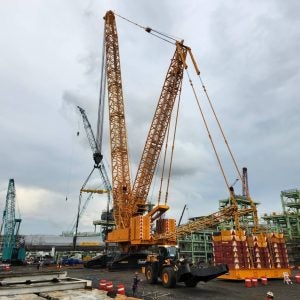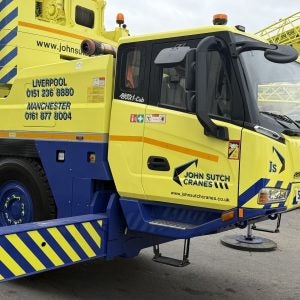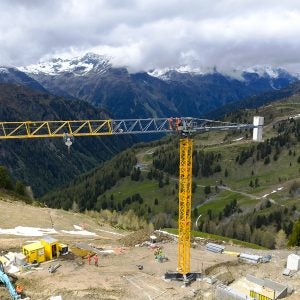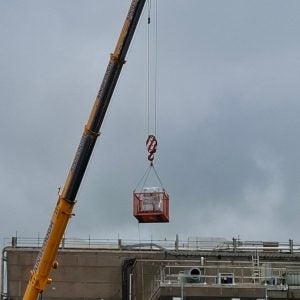The National Commission for the Certification of Crane Operators (NCCCO) has confirmed plans for two new crane operator certification programmes for the USA. The new programmes will be for overhead crane operators and tower crane operators.
“The success of NCCCO’s certification programme for mobile crane operators has led to sustained industry requests for similar programmes to address operators of other types of equipment,” said NCCCO president Ron Schad, who is also president of Essex Crane Rental. “Given the widespread adoption of its mobile crane programme, and the endorsements it has garnered, NCCCO is the appropriate entity to develop and administer these new programmes.” The overhead crane operator certification programme is being developed in collaboration effort with the Crane Manufacturers Association of America (CMAA) which has agreed seedcorn funding to get the project off the ground. “We are delighted to join with NCCCO in developing this important new programme,” said CMAA managing director Hal Vandiver.
“NCCCO and CMAA share many mutual goals, notably providing employers with a fair and independent method of verifying operator qualifications, and making the work place safer and more productive for all employees,” Vandiver added.
Kerry Hulse, operations manager of Deep South Crane & Rigging, and chairman of NCCCO’s Commission, noted that the new programmes would draw on three major resources: financial support, subject matter expertise, and psychometric guidance. “All elements of the new programmes will be developed according to the strict psychometric standards that have been a hallmark of the mobile crane operator programme, thus ensuring the certification process will be valid, reliable, and legally defensible,” he said.
NCCCO plans to model the new programmes on its existing mobile crane operator certification programme, Hulse added. “Among the certification requirements that will be considered are written examinations, practical examinations, physical (medical) requirements, an experience requirement, and a recertification requirement,” he said. For the sake of efficiency, NCCCO plans to develop of both programmes concurrently through two task forces, one for overhead cranes and one for tower cranes. David Ritchie of St Paul Construction in Texas has been appointed chair of the tower crane task force. The overhead crane task force is chaired jointly by John Alexander of Cranetex in Texas and Pete Kerrick, VP of Morris Material Handling Inc, based in Wisconsin. Kerrick is also chairman of CMAA’s crane manufacturers’ service committee.
The types of cranes under consideration for inclusion in each programme will be determined by the task forces, Hulse said. Among the tower cranes proposed are top- and bottom-slewing cranes; top- and bottom-climbing cranes; rail-mounted tower cranes; and luffing jib tower cranes. The overhead crane task force will consider for inclusion: cab- and pendant-operated types; single/double girder, underhung/top-running bridge cranes; gantry cranes, hoists, and monorail systems.
NCCCO executive director Graham Brent said that development would begin in the second quarter of 2003 and continue throughout the year. “By any definition, this is an aggressive development programme, with five subject-matter expert meetings anticipated this year alone, beginning in early spring,” he said. “However, if we maintain good progress, both programmes could be ready for introduction by the end of the first quarter 2004.” (Graham Brent is among the speakers at Crane Safety 2003, a major international conference being held in London, 16-18 June. For further details of Cranes Safety 2003, email jrossiter@wilmington.co.uk)






